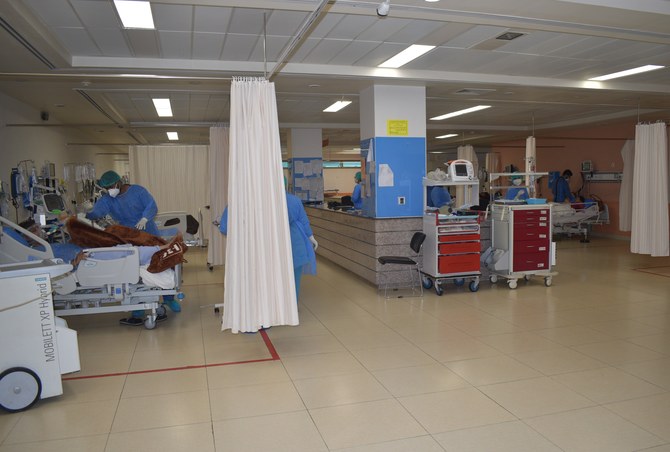ISLAMABAD: More than 10,000 people have been treated for COVID-19 at the Pakistan-Emirates Military Hospital (PEMH) in Rawalpindi since March, a senior hospital official told Arab News on Saturday.
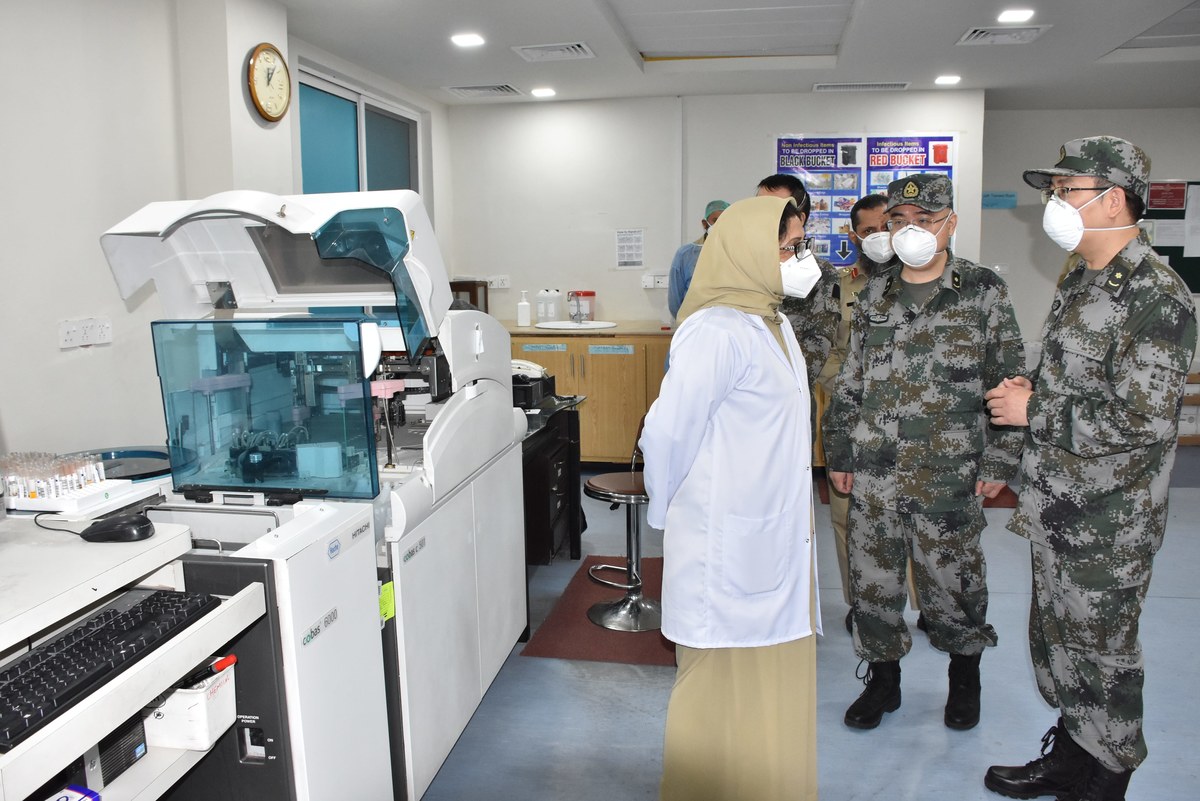
A staff member of Pakistan-Emirates Military Hospital (PEMH) talks to military officials on Aug. 29, 2020. (AN photo)
“During the COVID-19 pandemic, the hospital served as a dedicated treatment and research center for coronavirus patients and treated over 10,000 patients of varying severity by offering a full spectrum of treatment ranging from ventilatory support to stem cell therapy and generating valuable research during the course of crisis,” Major General Mahmood Sultan, Commandant PEMH, added.
Launched in May 2017, under the UAE-Pakistan Assistance Program (UAEPAP), the PEMH was built at the cost of $108 million and is one of several facilities tasked with fighting the coronavirus outbreak in the country.
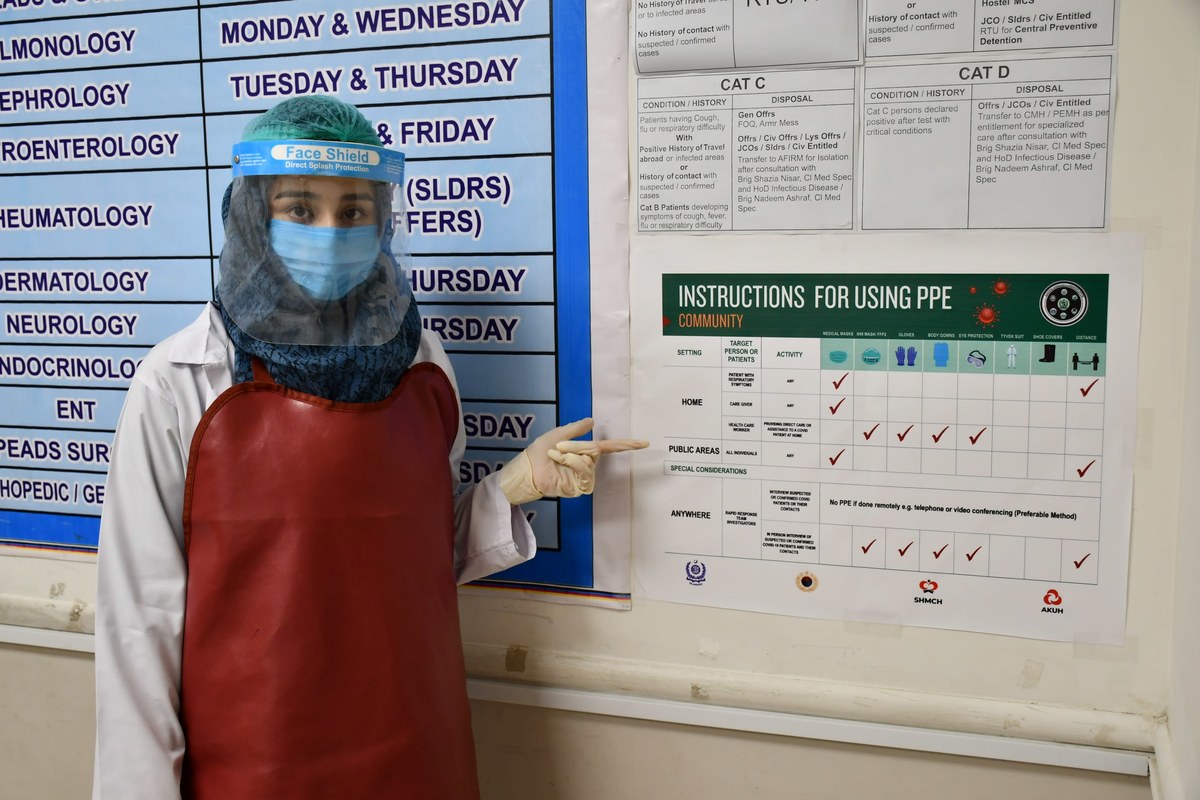
A staff member of Pakistan-Emirates Military Hospital (PEMH) in Rawalpindi is wearing protective gear on Aug. 29, 2020. The hospital is a dedicated treatment and research center for coronavirus patients. (AN photo)
“The PEMH is the largest ISO-9001-2015 certified hospital of Pakistan Armed Forces which offers state of the art indoor and outdoor multidisciplinary care to its patients,” Sultan said, adding that it can “expand its bed capacity from 1,000 to 1,500 beds” and draws its “strength from its academic credentials.”
“It is an affiliated teaching hospital for undergraduate medical students of the Army Medical College and is also recognized in 24 disciplines for postgraduate training of doctors,” Sultan said.
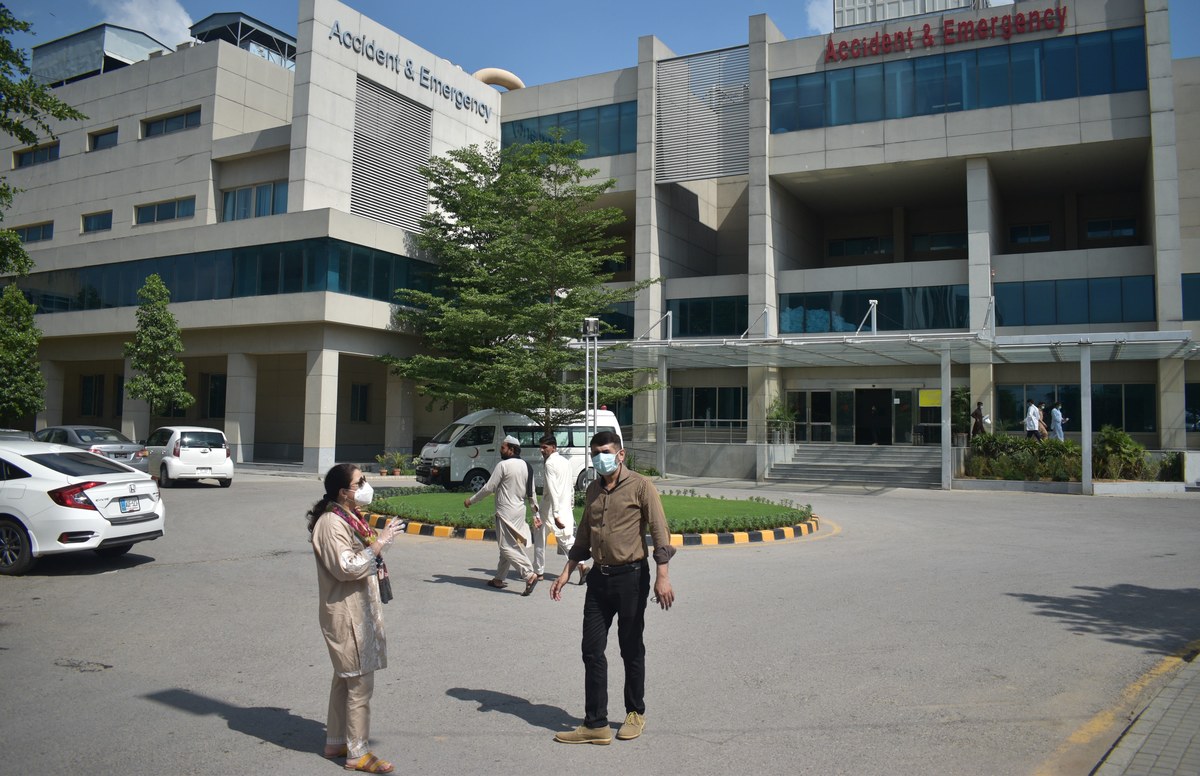
Pakistan-Emirates Military Hospital (PEMH) staff member talks to Arab News in Rawalpindi on Aug. 29, 2020. (AN photo)
In addition to facilitating Pakistan in its anti-coronavirus fight, the UAE has also sent three shipments containing 18.3 tons of medical aid and food supplies and 20,000 coronavirus testing kits, in the past three months.
Other development measures include the reconstruction of seven health facilities in Swat, Bajaur, and Dir districts after they were destroyed by floods in 2010, while work is underway for the provision of four more hospitals in South Waziristan, at a total cost of $125 million.
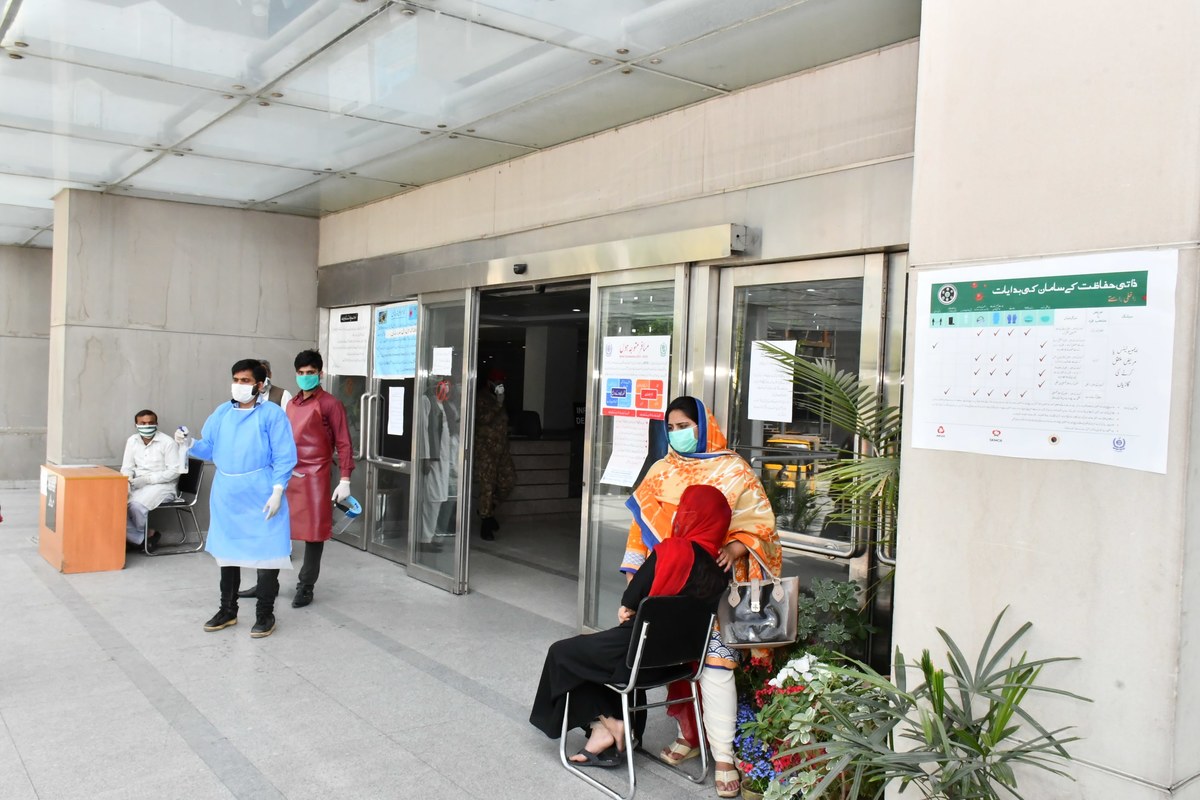
People stand in front of the Pakistan-Emirates Military Hospital (PEMH) building in Rawalpindi on Aug. 29, 2020. The hospital has treated more than 10,000 coronavirus patients. (AN photo)
According to the UAEPAP website, the reconstruction of these hospitals will “accelerate the provision of medical services to the local population.”
The UAEPAP was established in 2010 and has overseen several development and humanitarian projects in Pakistan, particularly in the education, infrastructure, and health care sectors.


